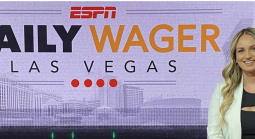How Might the Norwegian DNS Blocking Affect the Gambling Sector?
While gambling has found itself across cultures, it has not always been an easy ride. The challenges presented have been numerous - from online con artists to unscrupulous sites. And if statistics actually mean anything, an Onfido Identity Fraud Report found the average gambling fraud rate to have increased to 7.6% in 2023 from 4.2% the previous year.
And that is not all - the research further showed that the level of fraud in gambling was worse than most industries, which had average levels of approximately 4.4%. Due to this, countries such as Norway have started putting in place measures to shield their citizens. Just a few days ago, Norway announced plans to introduce DNS blocking for foreign operators lacking local licenses.
And if you are wondering how the DNS block in Norway could affect the gambling industry, you are just in the right place. But before going any further, let us look at what the online casino industry looks like in this country.
The state of the online casino industry in Norway
Well, just as other countries have been witnessing a growing trajectory in terms of the number of online gamblers, Norway has been no different. In fact, Statista believes that the number will have exceeded three hundred thousand by 2029. Revenues in the online casino sector alone peak at $320.4 million and are expected to reach $402.4 million in the next few years.
Why do you think that the sector has been growing this much? Here are a few suggestions:
Adapting to current trends
You might be astonished to find out that nearly 96% of Norwegians aged 16 and above understand what cryptocurrency is. Recently, the results of a survey conducted by Norges Bank showed that 11% of all respondents had owned crypto at some point in time, and this value may be expected to rise in the near future. Considering that you are running a business in such an ecosystem and have observed such preferences, what would you most likely do? Integrate cryptocurrency technology into your system, wouldn’t you?
And that is exactly what Norwegian online casinos are doing. Several of these platforms have now integrated crypto payments and games to cater to growing interest in digital tokens. Other technologies that more operators may likely adopt to remain competitive include AI and live streaming.
Broadening game selections
You can actually agree that the gambling sector is one of those industries where innovation is the order of the day. After all, you don’t just want to keep playing the games that do not offer you a new experience. It is the freshness of a platform’s portfolio that keeps us returning.
One good thing about diversifying product portfolios is that you can easily tap into new markets. We may not all love to participate in a specific game. Therefore, if you can offer games that appeal to varied tastes, you can always be sure to attract many audiences. What other better way to improve player satisfaction than to ensure customers find what they are looking for? If that happens and you increase the retention rates by just 5%, Helpscout believes that you can actually increase profits by more than 25%.
How might the DNS block affect this sector?
Before we can even answer this question, do you really know what DNS blocking entails? This technology was initially developed to stop spam emails from potentially harmful websites. Over the years, it expanded and made it possible to prevent users from accessing specific websites.
If you try to access a website that has been blacklisted, the mechanism can detect that and prevent you from accessing it. Last year, Norway amended its gambling act to allow its gambling regulator to block illegal sites starting this year.
The amendment was recommended by Lubna Jaffrey, the country’s Minister of Culture and Equality, on October 20th and actually approved on the same day by the Council of State. Jaffrey said that the move was to help the government limit gambling problems and protect vulnerable players.
That is not all. The Norwegian Gambling Authority has also banned transactions of payment providers with operators that do not have a local license. In a statement vindicating the government, Jaffery said that internet providers were actually feeling the pain because of non-compliant foreign gambling companies.
However, this decision was welcomed with mixed reactions from various people. Maarten Haijer of the European Gaming and Betting Association encouraged the Norwegian country to shift to a licensing model that meets the apparent demand for alternatives by players.
Will there be any negative consequences?
Well, from this discussion, you can see the country has the best interests of players at heart. But is that all we can expect? Some experts have hinted that this move could lead to more limited casino gaming options for players.
Remember, Norway already has some tough laws that already limit gaming options. In fact, the European Gaming and Betting Association named it among the few remaining state gambling monopolies in Europe.
And now that banks in the country are already limiting transactions linked to unregulated gaming, implementing a DNS blocking model might lead to a thinner gaming supply. Plus, quite a good number of legitimate gambling sites may be affected by this move. You can imagine what might happen if a specific genuine site shares domain names with one that has been blocked.
Is it possible to avoid the DNS block?
Of course, any global platform eyeing the Norwegian market may wish to avoid DNS blocking. But there might not be a one-size-fits-all answer to this question. We might need first to determine the features that the country’s regulator will likely use in implementing this measure:
- Platforms that use the Norwegian language
- Sites that allow payments in the country’s currency
- Whether you advertise in Norwegian media
- Do you have a connection with Norway in any way in terms of addresses?
- Whether you feature Norwegians in your promo efforts
- Operators that direct profits to organizations in the country
- You have contact with Norwegian support services like Hjelpelinjen
- Are you trying to neglect payment restrictions on gambling?
If, by any chance, your platform meets either of these criteria, you could face DNS blocking. It is not enough just to switch languages to English.
Norway has, for quite some time now, actually committed itself to safeguard its inhabitants, and this is not only limited to gaming activities but even in other spheres. Accordingly, the gambling authority received instructions to restrict the activities of unlicensed operators within the jurisdiction following the recent changes made to the gambling law.
Such actions may yield both benefits and drawbacks. For instance, we may see scams reduce on the positive and gaming options reduce on the negative. But since all these are speculations, we may have to keep watching the industry and see what the future holds.
|
|















